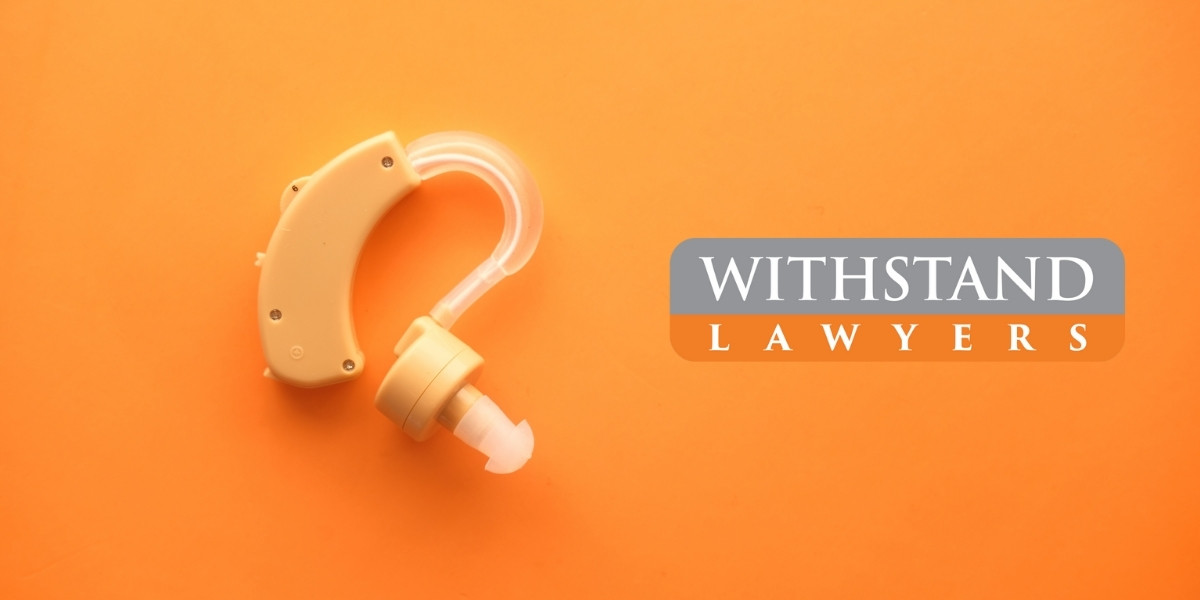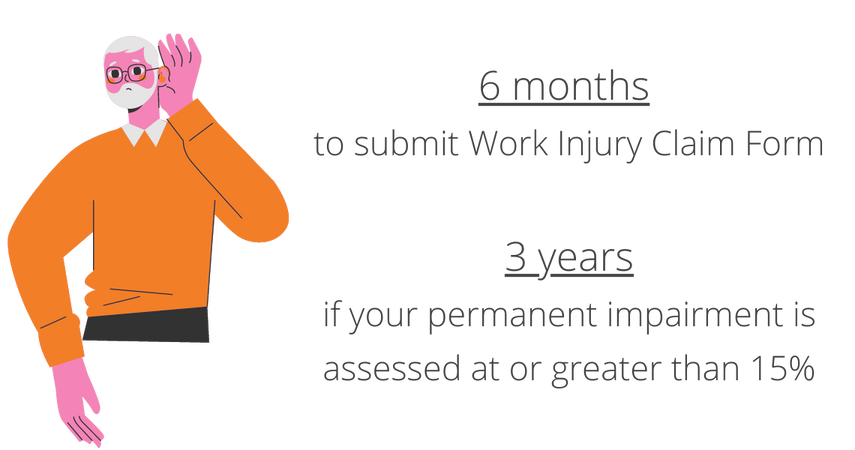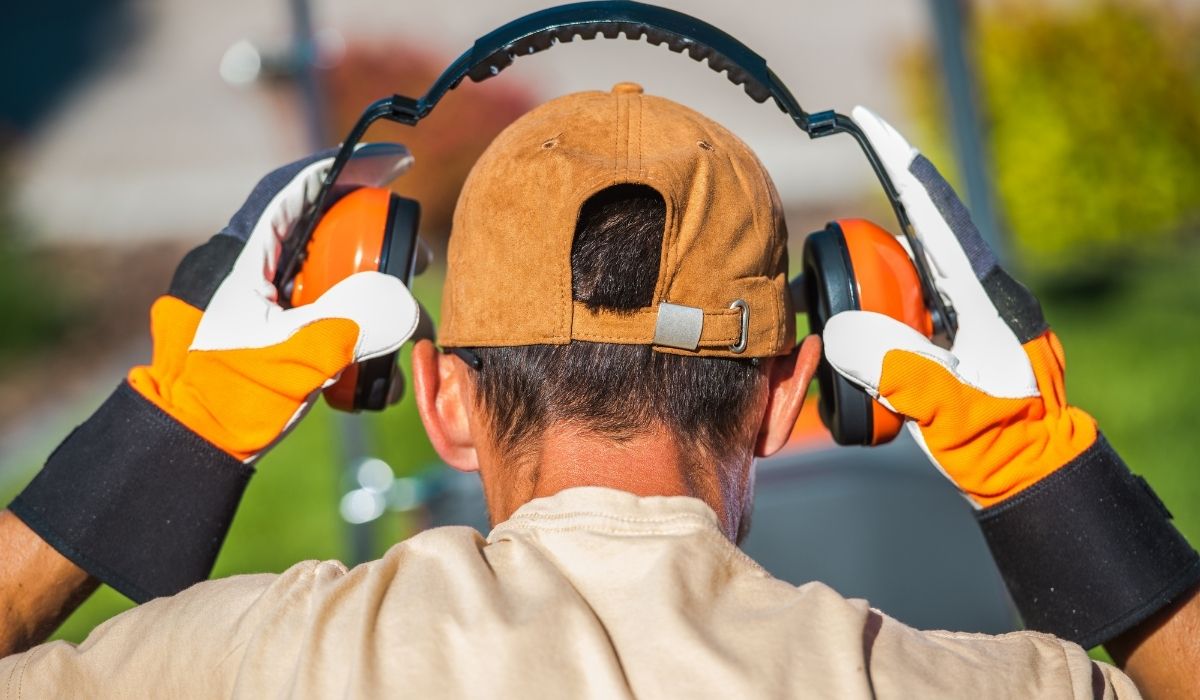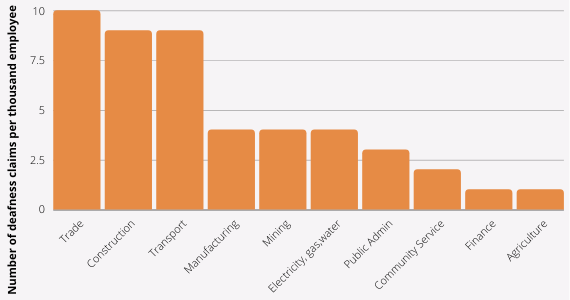Industrial Deafness Claims and Time Limits

Industrial deafness, in other words, occupational deafness, is a serious injury that can limit a person’s life. It may occur due to a specific accident, or event that has a gradual onset. The most common symptoms of Industrial deafness are difficulty hearing in open spaces, difficulty talking on the phone, and watching broadcasts on a higher volume.
Machine operators, miners, truck drivers, factory, and construction workers are more likely to experience industrial deafness due to workplace noise. Claiming for industrial deafness is common in these industries, but workers in any occupation affected by workplace noise may be eligible. If you’ve suffered hearing loss at work, you could make a workers’ compensation claim for industrial deafness.

If you have experienced industrial deafness due to your workplace, you may be entitled to make a workers’ compensation claim.
- No Upfront Costs
- No Win No Fee
- 99% Success Rate
- Maximum Lump Sum Payout
What are My Entitlements For an Industrial Deafness Claim?
If you suffer from hearing loss due to during the course of work, you may be entitled to:
Costs of medical expenses & transportation expenses
Such as the cost of a hearing aid and other reasonable and necessary medical expenses
Weekly payments for loss of income
Based on your average earnings before the injury and capacity to work
Lump sum payout for your permanent injuries
If your physical permanent impairment meets the 11% permanent impairment rate. The permanent impairment threshold is greater than 0% for exempt workers.
Common law/work injury damages payout
If your employer was negligent and your permanent impairment meets the 15% whole person impairment limit.

How is Hearing Loss Compensation Calculated?
Hearing loss compensation is based purely on your whole person impairment rating as the amount of compensation is dependant specifically on the level of whole person impairment. Our lawyers can calculate your hearing loss compensation upon being assessed for hearing loss. Our lawyers would organise a hearing loss assessment with a Ear, Nose and Throat (ENT) specialist.
After your medical assessment, our lawyers would, depending on the report which would include a copy of the audiogram, claim lump sum compensation on your behalf based on the whole person impairment.
Claiming for Industrial Deafness - Compensation Claim Example
| Compensation | Amount |
|---|---|
| Permanent impairment lump sum payment | $24,810 |
| Medical expenses reimbursement | $4,000 |
| Total Amount | $28,810 |
The following is an example claim for industrial deafness:
The worker suffering hearing loss is assessed at being 11% whole person impairment, and his injuries occurred due to his employer’s negligence. 11% whole person impairment would result in $24,810 in a lump sum payment. That does not include any other benefit or payout as it’s a separate entitlement that you are entitled to claim if you meet the 11% threshold.
I Have Hearing Loss; How do I Make an Industrial Deafness Claim?
You can call our workers compensation lawyers for a free claim check, and we will help you in 3 main steps.
How Can I Make an Industrial Deafness Compensation Claim?
If you have experienced hearing loss, you should Undergo a hearing loss test as soon as possible. Once that is complete please contact our lawyers for a free claim eligibility check.
Industrial Deafness Claim Time Limit

The time limit to submit the Work Injury Claim Form is 6 months after your injury. If your permanent impairment is assessed at or greater than 15%, the time limit is 3 years. If you had an accident more than 3 years ago, you still may be able to make a claim. Reach our workers’ compensation lawyers for further details.
How Long Does an Industrial Deafness Claim Generally Take?
Each compensation claim is different and gathering the necessary documents during the discovery process will take time. However, mostly industrial deafness claims take 6 -12 months to be finalised. Our lawyers can inform you of the legal process that you may go through during a free claim assessment.
Do I Need a Lawyer When Claiming Industrial Deafness?
The eligibility and amount of lump sum payment are dependent on the result of your hearing assessment. You can refer yourself to an Independent Medical Examiner and manage the entire process with the insurance company by yourself. However, our lawyers know the eligibility, process and the law of making an industrial deafness claim and our representation is at no cost to you. So if you have worked in a noisy environment that has affected your hearing loss, you deserve the best advice to ensure you claim the maximum compensation.
Our compensation lawyers take pride in knowing that we provide you with the best possible legal advice in a way you understand.
Our process:
Step 1
We will listen carefully to your situation, take everything possible into account and make sure you actually understand your compensation entitlements and how to claim them.
Step 2
Obtain relevant documents to support your compensation claim and maximise your compensation entitlements.
Step 2
Negotiate with the other side to settle or resolve your claim for the best result whilst keeping you informed and updated.

Which Occupations Are More at Industrial Deafness Risk?
According to Safe Work Australia’s report, almost 1 million employees in Australia are exposed to dangerous levels of noise at their workplace, which can lead to industrial deafness. Also, due to a lack of hearing protection, thousands of workers suffer from hearing loss.
The figure below shows the number of claims made per thousand employees per industry.

Trade, construction, and transportation industries are the top 3 occupations that suffered from hearing loss. The manufacturing, mining, energy, public administration, community services, agriculture and finance industries are also at risk for causing industrial deafness to their fields.
Frequently asked questions
The short answer is no; our compensation lawyers are approved by the Independent Review Office which means your legal costs and the costs of the disbursements, such as the medical evidence and whole person impairment assessment costs are covered.
Yes, if you suffered hearing loss due to your workplace, you can make an industrial deafness claim to get your hearing aids expenses covered.
It’s safe to say being an exempt worker is an advantage when it comes to receiving compensation benefits since workers compensation claims for exempt workers are processed differently. The minimum permanent impairment threshold for exempt workers is greater than 5%. Read our exempt worker blog for further information.
Contact our Industrial Deafness lawyers today to find out if your hearing loss entitles you to claim your hearing aids expenses and compensation payout today by calling us on 1800 952 901 or by contact form!

Issa Rabaya
• Bachelor of Laws
• Graduate Diploma in Legal Practice
• Approved Legal Service Provider to the Independent Review Office
• Member of the Law Society

Issa Rabaya
• Bachelor of Laws
• Graduate Diploma in Legal Practice
• Approved Legal Service Provider to the Independent Review Office
• Member of the Law Society
Free Initial Consultation

Related blogs

Catastrophic Injury Compensation
What is a Catastrophic Injury? A catastrophic injury is a severe, life-altering injury that often results in long-term or permanent disability, significant medical expenses, and

Can I retire while on workers compensation?
What happens to my workers’ compensation when I retire? If you have been receiving weekly payments through your workers’ compensation claim and you have reached

Can Your Workers Compensation Claim Be Denied?
If you have been injured in the course of employment you are entitled to workers compensation entitlements which include but are not limited to wages,

Workers Compensation Payout Guide NSW
Workers compensation lump sum payments in NSW In New South Wales, when a worker sustains an injury during the course of employment, physically or psychologically, he/she

